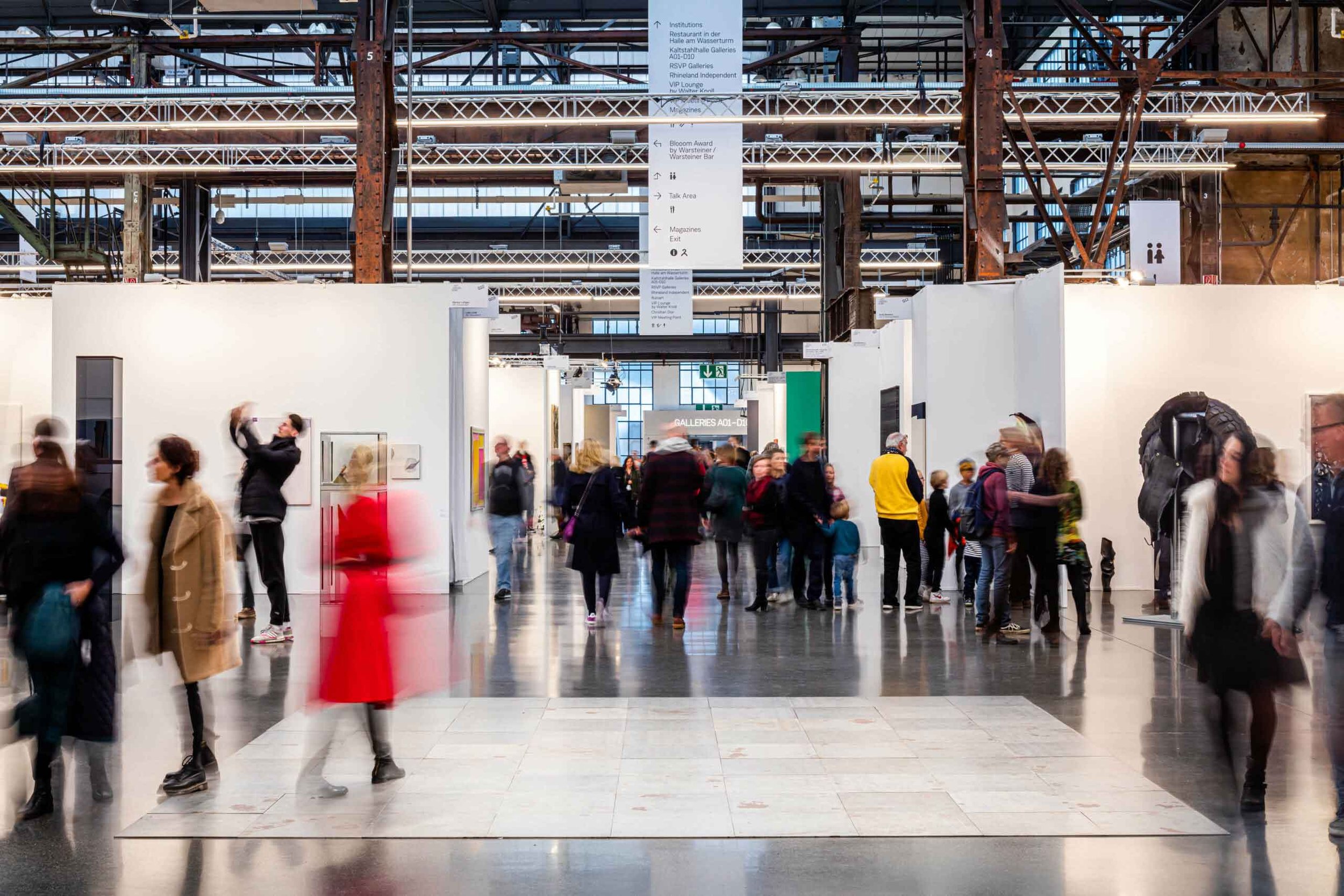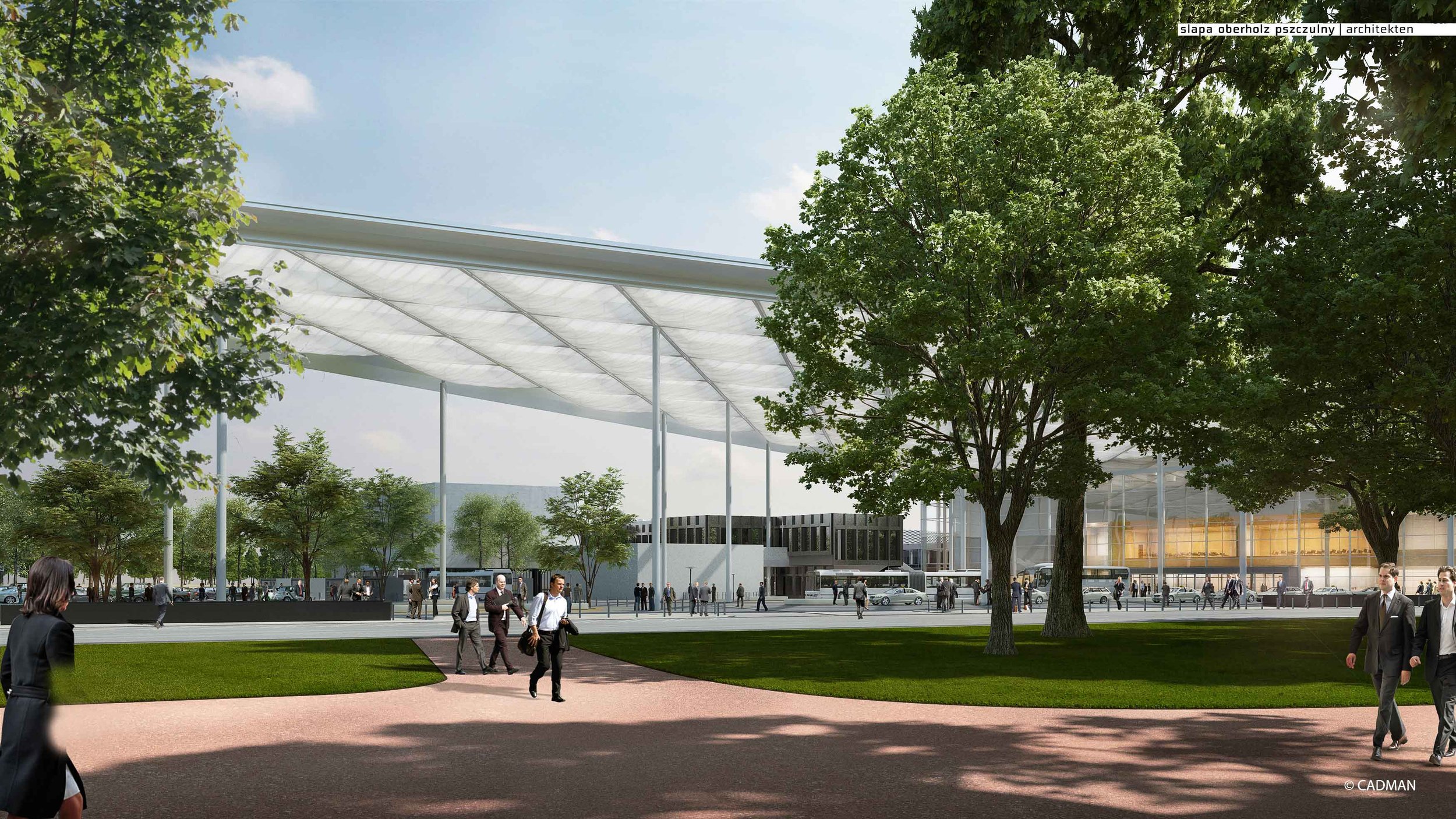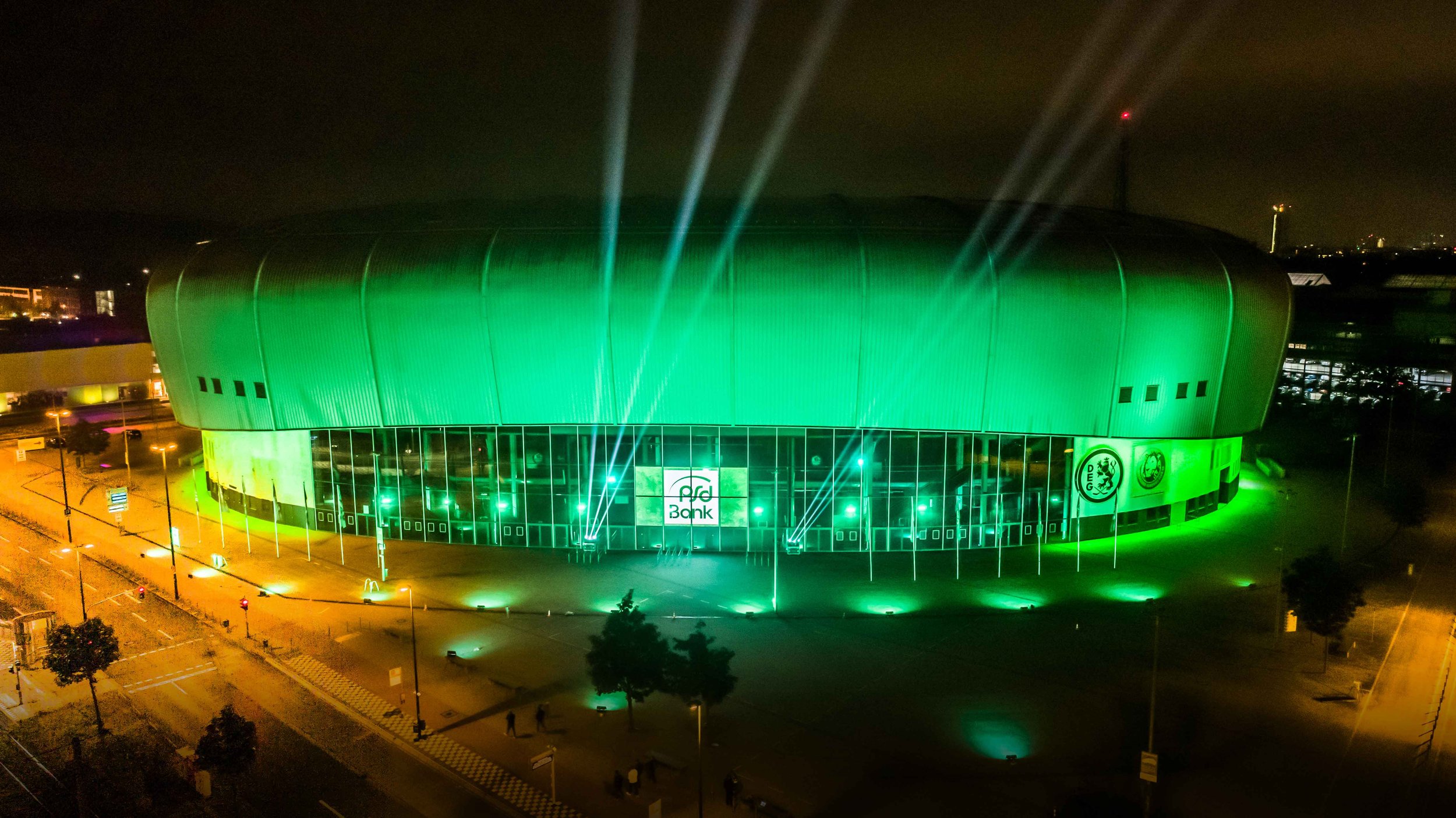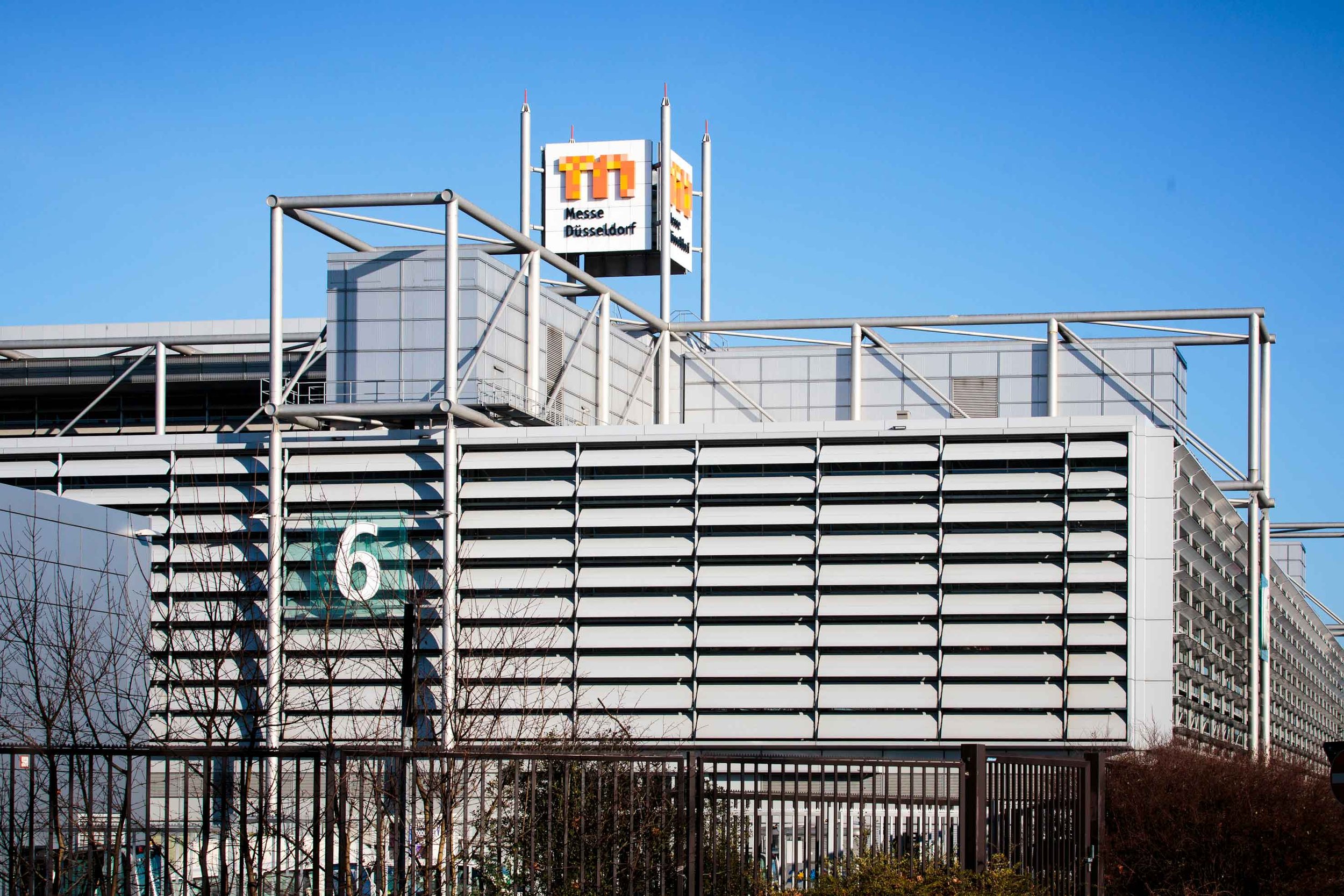Reimagining events and trade fairs
The last two and a half years have been a very instructive time for the congress and event industry. Many new formats and business models have emerged to promote networking and exchange in the future or to be a platform for future solutions.
Around 70 percent of the planned trade fairs in Germany were cancelled in 2020 and 2021. The Association of the German Trade Fair Industry (AUMA) estimates that the pandemic caused economic damage of 55 billion euros. For Düsseldorf’s economy alone, the impact of Covid on Messe Düsseldorf is estimated to result in a loss of 2.49 billion euros (from the start of the pandemic in 2020 to the restart of trade fairs in the second half of 2021). But the event industry has also rethought extremely quickly: according to Meeting & EventBarometer Germany 2021/2022, the number of face-to-face events and participants in 2021 continued to decline compared to 2020, but the growth of hybrid events more than compensated for this decline.
This fast learning is also evident at the international trade show and congress venue Düsseldorf - for example in the CCD Congress Center Düsseldorf, right next to the new exhibition hall 1: „Already during the first lockdown, we set up streaming studios in part of our premises and supported our customers with our professional technology and know-how in staging their virtual events. During the warmer months, with careful safety and hygiene measures, it was then also possible to hold in-person events or hybrid models, such as the Japan Convention “DoKomi” in August 2021 (see p. 18, editor‘s note) or the “Tonmeistertagung” in October 2021, explains Maria Kofidou, Managing Director of Düsseldorf Congress GmbH.
The streaming studios, for example, were often used by stock corporations to be able to hold their general meetings in digital form despite the pandemic.
Nearby, on the top floor of the Messe Düsseldorf headquarters, its president and CEO Wolfram N. Diener comments on the current situation as follows: “Our strategic reorganisation, the cost-cutting measures and the largely eliminated Covid regulations are showing an effect: we are slowly but steadily recovering from the pandemic. Trade fairs continue to have a high relevance - this is communicated to us again and again.” While Messe Düsseldorf was already able to halve its loss in 2021 compared to the previous year, the recovery course is expected to improve even further in the current financial year, with a “manageable minus” expected. The autumn trade fairs, above all K 2022, the world‘s leading trade fair for the plastics and rubber industry, are decisive for the result.
“A lot has been learned in the industry, especially in terms of digitalisation.”
Of course, many other suppliers and locations contribute to a diverse and lively event scene in Düsseldorf. The ”Areal Böhler“ bordering Meerbusch, for example, is the venue for smaller trade fairs such as Art Düsseldorf (contemporary art), the Digital Demo Day or the polis Convention (urban and project development). The Merkur Spiel-Arena, home of the Fortuna Düsseldorf football club, will host five matches of the European Men‘s Football Championship EURO in 2024 (see page 13). In a few weeks, the PSD BANK DOME will be the stage for the international music highlight MTV EMAs (see page 16). And in the business sector, numerous recurring networking events such as Creative Mornings, Beyond Tellerrand or LeanDUS have proven their worth; publishing houses such as Rheinische Post and Handelsblatt also offer companies platforms for live communication. In addition, there are countless event locations spread across the entire city area - from themed bars to conference hotels and multifunctional halls to event ships.
Even if Covid has acted as an extreme digitalisation accelerator in the event industry, most of those involved are naturally pleased that more live formats are currently possible again. This is also the case for Messe Düsseldorf CEO Diener: „At an in-person trade fair, you can touch products, experience technologies in detail and look the people who have developed them with passion in the eye and have everything explained to you. You can also see what the competition is doing. For many visitors, trade fairs in particular are like a kind of class reunion. Above all, this human factor simply cannot be reproduced in the same form virtually.“ In addition to efficient trade fair preparation and support (e.g. in the form of apps), he sees the great advantages of digitalisation above all in the areas of service and community building. For example, this allows customers to be reached who do not necessarily have to attend a trade fairs every few years because their machines have longer product life cycles, for example. “They can still network via a digital platform, see what‘s happening with the competition or get further training and education via webinars and workshops.”
The huge topic of sustainability is also of enormous concern to the events industry. In a joint AUMA position paper, for example, German trade fair representatives, including Messe Düsseldorf, have committed themselves to measures. These range from waste reduction, intelligent logistics systems and the expansion of the charging infrastructure for e-vehicles to the increased use of regional, seasonal and organic products in catering. In very concrete terms, the German trade fair industry will, for example, integrate sustainability criteria into tenders from 2023 and use 100 per cent green electricity by 2025 at the latest (already the case at Messe Düsseldorf!). The topic has been an integral part of Düsseldorf‘s leading trade fairs for many years: exhibiting companies show innovations that promote the circular economy, for example, or initiatives such as SAVEFOOD at Interpack help to avoid food waste. With decarbXpo, Messe Düsseldorf also organised its own event for the first time at the end of September 2022, focusing on the decarbonisation of industry and the storage of energy.
A lot has been learned in the industry, especially in terms of digitalisation, and it also sees itself as a pioneer and platform for necessary sustainable solutions for the future. Accordingly, they are looking ahead and setting new goals. Congress centre boss Maria Kofidou looks at this: “After successful autumn events, such as the Congress for Paediatrics and Adolescent Medicine, an interdisciplinary conference of five medical associations, and the SpoBis , Europe‘s largest sports business event with over 4,000 participants, we are now putting a lot of energy into our sales team. Our goal: to bring even more large national and international events, by which I mean events with 3,000 or more visitors, to Düsseldorf.” •
Trade fairs as international business promoters
Düsseldorf as a business location also benefits enormously when its trade fair expands into foreign markets. Before the Covid pandemic, this ensured a strong increase in international visitors and exhibitors.
With the new event FoodAfrica Cairo, Messe Düsseldorf is consolidating its presence in the growth market of Egypt as the gateway to Africa and the Middle East. This will extend the added value of the parallel running “pacprocess Middle Eastern Africa” from the packaging to the food industry. The duo will premiere in December 2022.
In the North American market, it recently entered into a strategic partnership with the Association for Uncrewed Vehicle Systems International (AUVSI). Together they intend to stage and further develop the world‘s leading trade show for unmanned systems, XPONENTIAL; the market for this has enormous growth potential.
Other new building blocks on the expansion course are GIFA and METEC Indonesia as new platforms for the emerging Indonesian metallurgy and foundry industry. The premiere is in mid-September 2023.
Words Tom Corrinth
Pictures Art Düsseldorf 2017/Sebastian Drüen
Messe Düsseldorf/slapa oberholz pszczulny architekten
Messe Düsseldorf/Constanze Tillmann/D.LIVE: Kai Kuczera






